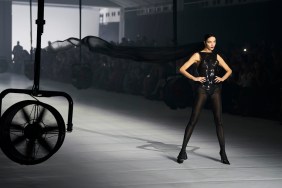Is imitation really the sincerest form of flattery? And when does a copycat go too far, and become a stalker?
The lines are sometimes blurred. Celebrities use imitation to gauge their popularity, and more than a few – such as Kate Moss – have turned their much-imitated personal style into profitable clothing lines.

A close friend of mine wasn’t sure what to think recently when she found out that a clone of hers was seen at a function she was supposed to attend. While she is not a celebrity, she is frequently photographed, and the offender was known to be a fan of hers. Fan or not, my friend felt invaded, and is hovering between feeling flattered and enraged. “There’s a fine line between what is flattering and what invades your sense of identity and privacy,” she said.
No one in their right mind should want to be the doppelganger of someone else. When someone is going about her own private life, albeit a slightly more high profile one than most people’s, imagine how she would feel if someone showed up at the next party dressed in a replica of her most recently photographed outfit, in the same color?
Short of staying home and not allowing photographs to be taken, there is nothing you can really do if someone wants to copy your style. Now, there is nothing wrong with being inspired by someone’s look – but elements should be adapted to work with your own style and figure.
So what is the difference between copying and stalking?
Stalkers used to be people who managed, through persistence and effort, to find out someone’s daily routine. And you didn’t have to be famous to have a stalker. Nowadays, people can stalk you without actually finding out where you live and following you. With pictures constantly taken and uploaded in real time, the rules governing privacy seemed to have changed.
Should people ask permission before posting pictures of a private event? Are your privacy settings on social networking sites adjusted so that only certain people can see photos of you and your friends? Let’s face it, if attending functions and events are part of your job, there is no way you will ever know exactly how many photos of you are floating around in cyberspace.

Not everyone is narcisstic enough to want their photos seen by everyone. But there is an equal number of people who don’t care because they don’t feel they have anything to hide.
But the thing with these “public” photos is that you won’t realize people have seen them unless someone tells you. For a non-celebrity, it becomes unnerving when people know where you go, who you’re with, and what you’re wearing. That’s kind of creepy, isn’t it? It’s a subtle form of cyber-stalking, and there isn’t much you can do about it. You can’t stop copycats and style snatchers, and you can’t stop people from knowing what you do and where you go.
This is the age of social media, identity theft, information overload, and paparazzi frenemies. And your life becomes a virtual reality show, shaped by an unknown production team and watched and interpreted by an invisible audience. Which is far more frightening than bumping into a clone of yourself.
Article excerpted from modelsblog.info







